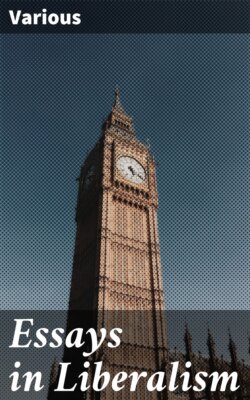Читать книгу Essays in Liberalism - Various - Страница 15
На сайте Литреса книга снята с продажи.
Hon. Litt.D.; Fellow of All Souls’ College, Oxford; F.B.A.; Professor of English History in the University of London; Chairman of the Institute of Historical Research.
ОглавлениеProfessor Pollard said:—The usual alternative to the League of Nations, put forward as a means of averting war by those who desire or profess to desire permanent peace, but dislike or distrust the League of Nations, is what they call the Balance of Power. It is a familiar phrase; but the thing for which the words are supposed to stand, has, if it can save us from war, so stupendous a virtue that it is worth while inquiring what it means, if it has any meaning at all. For words are not the same as things, and the more a phrase is used the less it tends to mean: verbal currency, like the coinage, gets worn with use until in time it has to be called in as bad. The time has come to recall the Balance of Power as a phrase that has completely lost the value it possessed when originally it was coined.
Recent events have made an examination of the doctrine of the Balance of Power a matter of some urgency. The Allies who won the war concluded a pact to preserve the peace, but in that pact they have not yet been able to include Germany or Russia or the United States, three Powers which are, potentially at any rate, among the greatest in the world. So, some fifty years ago, Bismarck, who won three wars in the mid-Victorian age, set himself to build up a pact of peace. But his Triple Alliance was not only used to restrain, but abused to repress, the excluded Powers; and that abuse of a pact of peace drove the excluded Powers, France and Russia, into each other’s arms. There resulted the Balance of Power which produced the war we have barely survived. And hardly was the great war fought and won than we saw the wheel beginning to revolve once more. The excluded Powers, repressed or merely restrained, began to draw together; others than Turkey might gravitate in the same direction, while the United States stands in splendid isolation as much aloof as we were from the Triple Alliance and the Dual Entente a generation ago. Another Balance of Power loomed on the horizon. “Let us face the facts,” declared the Morning Post on 22nd April last, “we are back again to the doctrine of the Balance of Power, whatever the visionaries and the blind may say.” I propose to deal, as faithfully as I can in the time at my disposal, with the visionaries and the blind—when we have discovered who they are.
By “visionaries” I suppose the Morning Post means those who believe in the League of Nations; and by the “blind” I suppose it means them, too, though usually a distinction is drawn between those who see too much and those who cannot see at all. Nor need we determine whether those who believe in the Balance of Power belong rather to the visionaries or to the blind. A man may be receiving less than his due when he is asked whether he is a knave or a fool, because the form of the question seems to preclude the proper answer, which may be “both.” Believers in the Balance of Power are visionaries if they see in it a guarantee of peace, and blind if they fail to perceive that it naturally and almost inevitably leads to war. The fundamental antithesis is between the Balance of Power and the League of Nations.
